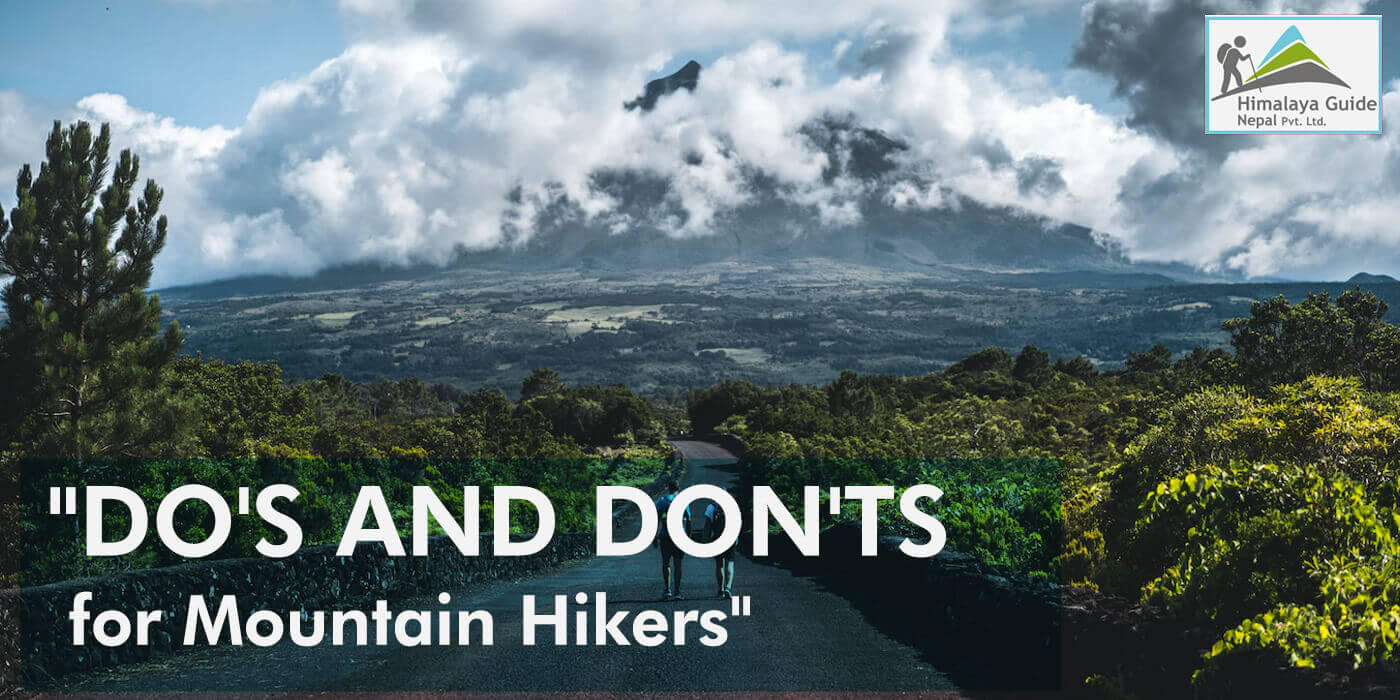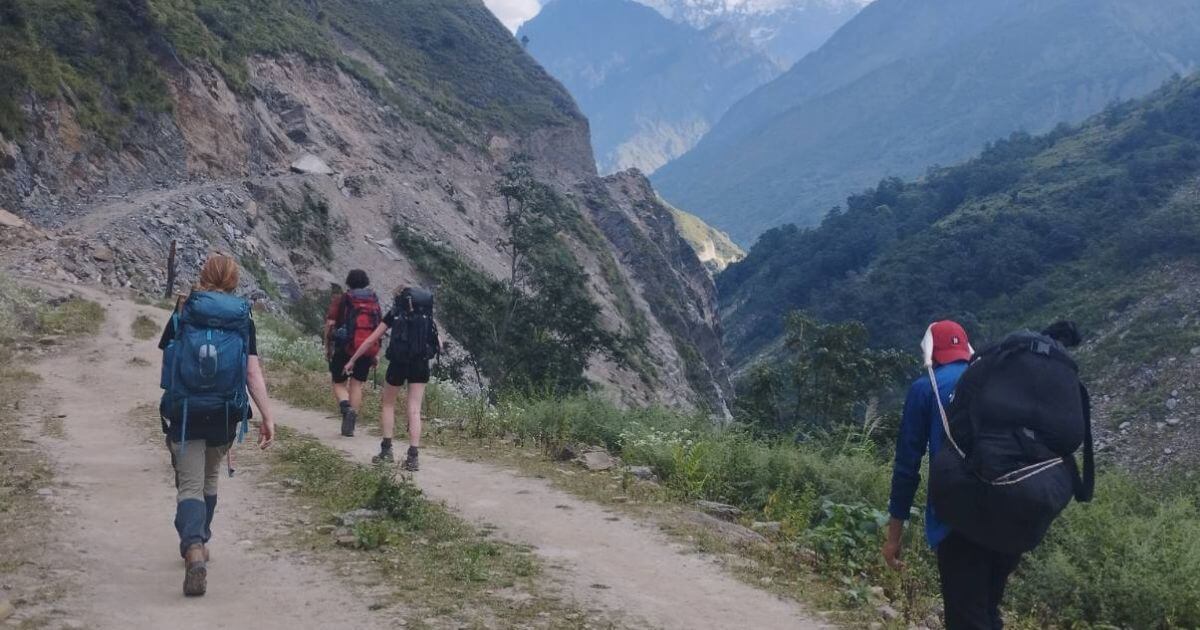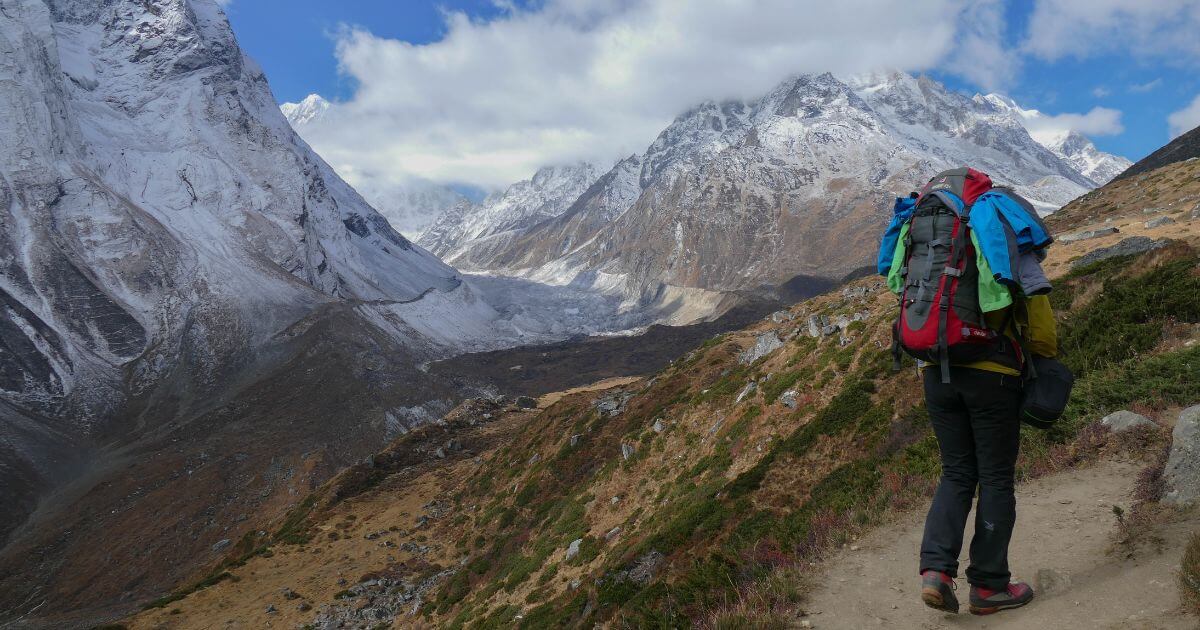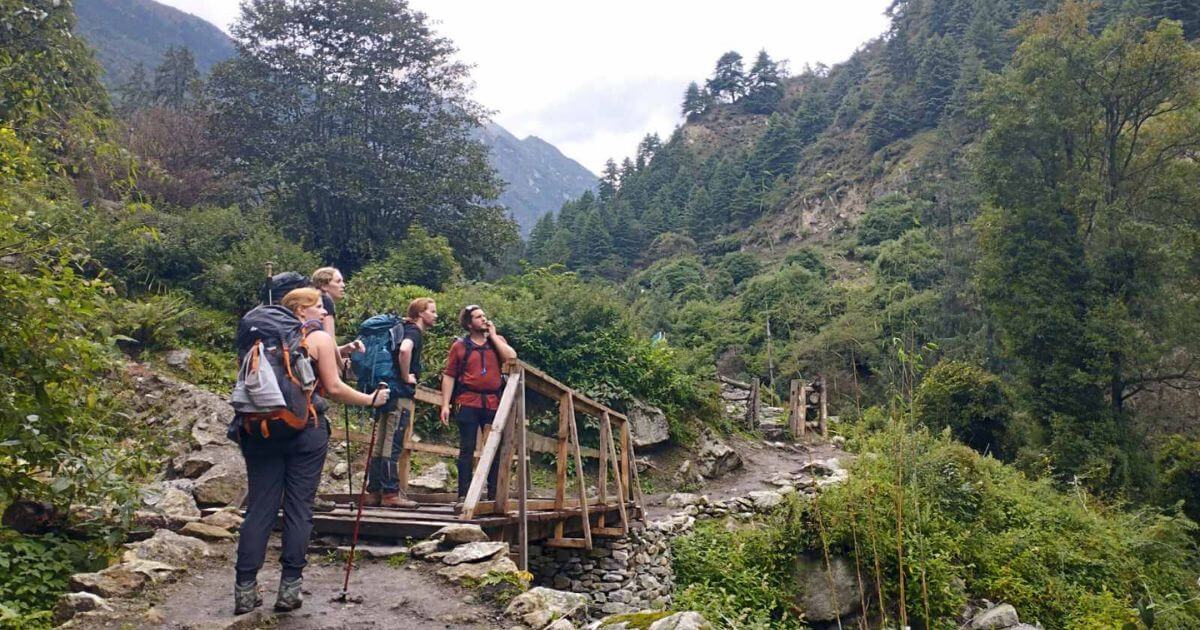Do’s and Don’ts for Mountain Hikers

14 Nov 2022 Chandra Gurung
If you read anything about a thru-hike, you can’t help but encounter the phrase “Hike Your Own Hike,” or HYOH. HYOH, which has a very literal meaning, serves as a reminder to mountain hikers to concentrate entirely on their trip and not let other mountain hikers’ hikes impact them.
But when trekking, HYOH is the ideal phrase to remember. Maintain your attention on your journey while respecting everyone else’s. You can achieve this by following a few standard, everyday etiquette. Here are two lists of trail etiquette for mountain hikers: considerations for the trail and things to avoid.
Some of these “Do’s and Don’ts” are strict guidelines for on-trail behaviour, while others are more thoughtful advice for fellow mountain hikers. However, they are all centred on respect.
1. Make No Trace
It seems so apparent to me, yet so many people ignore it. Leave No Trace refers to the idea of not leaving any waste behind, including organic food scraps like apple cores. Minor changes to the ecosystem can lead to more severe issues.
Make no Trace also means staying on the trail and respecting the surrounding wildlife. A sufficient number of mountain hikers have already used these hiking trails; the wilderness cannot sustain more humans trampling through it. It includes only camping in approved areas because you need to know what your tent can harm.
2. Be Alert to Noise Pollution

This always makes me look like a grumpy old lady. Still, most people go outside to enjoy nature, which includes hearing the raindrops, birdsongs, and the crunch of the ground under their feet.
This doesn’t mean that we want to hear your loud modern music going to blast from your portable speaker while you’re also yelling to all of your friends over it. Listen to the soundtrack that nature has created for you.
When you’re hiking alone, it’s understandable that some people would play loud music to frighten away bears. However, I usually wear a bell and occasionally whistle, sing, or communicate with myself to alert bears to my presence. Music is optional if you’re already in a group because your chatting will scare them off more than enough.
3. Never Feed Wild Animals
Have you ever visited a park or well-travelled trail where a squirrel or bird immediately jumps into your palm without flinching? If so, it’s not because they aren’t afraid of you but because humans have fed them and now depend only on that for sustenance.
Trying to feed wild animals can result in a variety of issues, including their eventual death. No matter how adorable they are, please refrain from feeding the animals.
4. Get Fully prepared
Anyone can hike, so you do not need special equipment to venture out into the mountains. However, if I see someone in flip flops or untied skate shoes without water and food, I will roll my eyes and get irritated because you are more likely to cause problems on the path than those other, better-prepared mountain hikers have to deal with.
Please bring plenty of water and wear closed-toed shoes with laces, at the very least.
5. Make Way for Others
On a trail, if someone is behind you closely, they probably want to pass rather than merely hang out and keep up with you. Please be mindful of those around you and move to the side when it’s safe to allow them to pass you.
When trekking in a team, the individual at the back should alert those in front that they must temporarily leave the trail.
In the opposite direction, you should also allow individuals to pass. I constantly scan the area when I notice people approaching to determine whether it would be simpler for me to leave the trail or for them to do so.
Step off onto a clear, flat area if there is one. Almost always, the person going down should stop because they typically have a better view of people coming up; if that is not possible, be cautious of your surroundings.
The easiest method to pass people moving in the opposite direction is to glance around, engage in eye contact with that group, and let them know whether or not you can stop. Never push through.
Which includes stopping if you need to use the restroom or take a break; instead, move off from the trail so that others can pass. The person watching you sip your water when they are just below you on the route isn’t doing it admirably; instead, they are irritated and want you to leave the trail so they can go on.
6. Park Correctly
Although it may seem obvious, the first few visitors to a trailhead often park anywhere they choose without considering the possibility that others may arrive later and be unable to locate a parking space.
7. Avoid Gatekeeping

This isn’t nice and refusing to inform folks wherever you went after publishing a picture. Refrain from making others feel guilty for wanting to venture outside and appreciate nature on their own if you do not wish to geotag. Anyone should have access to nature; it doesn’t belong to you; you belong to it.
I won’t stop anyone from going outside, and I recommend everyone to do so while showing respect for mother earth. Instead, promote the conservation of nature.
8. Take Care of Your Dog
Although we adore dogs and would like to see them everywhere, there are instances when they don’t fit in. There are good reasons why the trek you’re doing is a leashed-dog-only, or no dogs allowed path.
They may disturb the local wildlife or other mountain hikers, or occasionally the pathways may not be suitable for our canine companions. It makes me sad when we witness a dog straining to navigate rugged terrain or climb when their bodies aren’t built for that.
Just do your research before taking your dog on a hike; there may be solid reasons why they shouldn’t go along, either for their safety or the safety of others.
Remember that only some enjoy dogs, so don’t let your dog approach people to say hello if it won’t make them feel at ease. Even if you believe your dog to be the most well-behaved, others may not agree.
Wildlife is the other issue of having your dog, not on a leash. Yes, the barking of your dog may distract a grizzly or cougar. However, it will also deter all other small creatures, and running after them is far worse.
One more tip: always clean up after your dog! Leave no Trace morals to prohibit leaving the poop bags just on the trail’s edge at any time.
9. Mountain Hikers Also Live in Shelters at Night
Only some work long hours or arrive at camp at night. If so, fantastic! However, show consideration for mountain hikers who have already set up camp or found a place to spend the night. When people are sleeping, avoid shining your light at its brightest setting, and avoid starting dinner next to someone when it is long after dark.
You have to respect hiker nighttime. Just remember to turn your headlamp to the red setting if you find yourself entering a shelter at night; it’s a simple fix that increases visibility without bothering people around you.
And if you know you snore, think about booking a separate room when you’re in town as a follow-up to the rest (and doing so is an option for you). While snoring won’t be a shocker in any bunkroom, your other mountain hikers will be grateful if they spend one night sleeping peacefully. I’d also like to remind you that earplugs are one essential item that hikers should never be without.
10. Never Construct a Tent Inside a Shelter
It is acceptable when you are the only campers there or when there is adequate room, and you have confirmed that it is okay with one or two other mountain hikers camping there. You are usually camping on the ground if you pitch your tent.
At the End!!

The mountain, the forest, and the world we are all hiking in are the same. Stop criticizing those you believe are hiking incorrectly, too quickly, too slowly, or who don’t do things the same way you do. Don’t let yourself lose sight of the phrase’s original meaning as you hike.
FAQ
Q: What is the hiking key rule?
The “golden rule”—treat others like you would like to be treated—is the best thing you can do when hiking.
Q: Can you hike after taking a shower?
Use no scented soaps, shampoos, cologne, or other products that make you smell (mosquitoes may find victims by “scent”)—shower before heading out on a hike.
Q: What does each hiker need to be aware of?
Tips for Hikers on Safety
Recognize your physical limitations and work within your means. It would be best if you didn’t rely solely on calling search and rescue when in the bush. Tell someone where you’re going and when you’ll be back at all times. Take the necessary safety measures for wildlife in the region where you are hiking.
